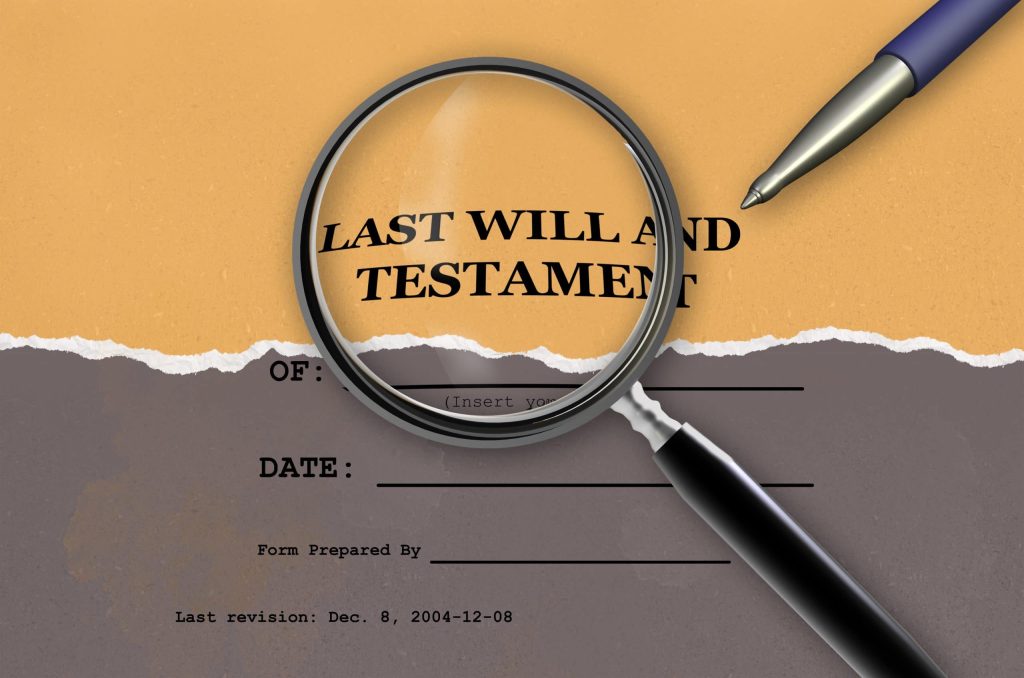“In Terrorem” Provision Does Not Violate Public Policy
OCTOBER 1, 2012 VOLUME 19 NUMBER 36 From time to time we have written about what lawyers usually call “in terrorem” provisions in wills and trusts. They are perhaps better known as “no-contest” clauses, and they are intended to prevent will (or trust) contests after the death of the signer. Typically, they say something like: […]
Disclaimer Ineffective When Signed After Accepting Benefit of Property
AUGUST 13, 2012 VOLUME 19 NUMBER 31 A recent Arizona appellate court decision gives us an excuse (not that we really needed one) to write about an arcane planning technique: disclaimer. How do you disclaim an interest in property, and why might you want to? We’ll see if we can give you an introduction to […]
Living Trust Does Not Prevent Court Involvement After Misuse of Funds
JULY 16, 2012 VOLUME 19 NUMBER 27 Living trusts are increasingly popular and common. One of the principal attractions for most people who execute living trusts is that they can avoid the complication, cost and oversight of the courts and of lawyers. That usually means the trust signer’s family can save money and hassle. Lack […]
Finders Keepers? Losers Weepers?
JUNE 4, 2012 VOLUME 19 NUMBER 22 Richard Scott (not his real name) had a propensity to hide things away. His children knew that, and they knew that when he died they would have to go on a treasure hunt — literally for treasure. Mr. Scott lived in the same house in Paradise Valley, Arizona, […]
Retirement Account Is Community Property But Need Not Be Split Equally

MAY 21, 2012 VOLUME 19 NUMBER 20 Arizona is one of the nine U.S. states which recognize “community property” (a tenth, Alaska, allows couples to voluntarily create community property interests). The other eight community property states: California, Idaho, Louisiana, Nevada, New Mexico, Texas, Washington and Wisconsin. Mention community property to a lawyer who has never […]
Missing Will Presumed Revoked, But Codicil Partially Reinstates It
MAY 14, 2012 VOLUME 19 NUMBER 19 In Arizona (as in most other states) there is an important rule about wills: if the original document was in the possession of it’s signer, and it can not be found after the signer’s death, then there is a presumption that it was destroyed. Not only that, but […]
Lifetime Asset Transfers Voided Based on Agreement to Make Will
MAY 7, 2012 VOLUME 19 NUMBER 18 We have written about contracts to make (or not to revoke) a will before. The question comes up infrequently, and usually only in a handful of ways: can you and your spouse make an enforceable agreement that you will leave your respective estates to, say, your children no […]
Guardianship May Suggest Lack of Testamentary Capacity

MARCH 19, 2012 VOLUME 19 NUMBER 11 Can a person under guardianship sign a new will? After all, in order to have a guardian appointed (in Arizona, at least), the court must first have found that the person is impaired by a mental disorder (or some other cause) and that he or she “lacks sufficient […]
Physical Limitations Can Lead to “Vulnerable Adult” Finding
MARCH 12, 2012 VOLUME 19 NUMBER 10 Georgia Griffin (not her real name) moved from Kansas to Arizona in 1997. She lived in her own townhome in Sun City West, a retirement community northwest of Phoenix, until 2001, when she moved in next door to her daughter Barbara, who lived in Scottsdale. Georgia’s story was […]
“Vexatious Litigant” Title Takes On Real Meaning in Phoenix Case
MARCH 5, 2012 VOLUME 19 NUMBER 9 We have written before about changes to Arizona guardianship, conservatorship and probate proceedings adopted in the past year. Changes involved both probate laws and court rules. One thread running through both sets of changes: the notion that proceedings in probate court could be unnecessarily complicated by “vexatious litigants.” […]


